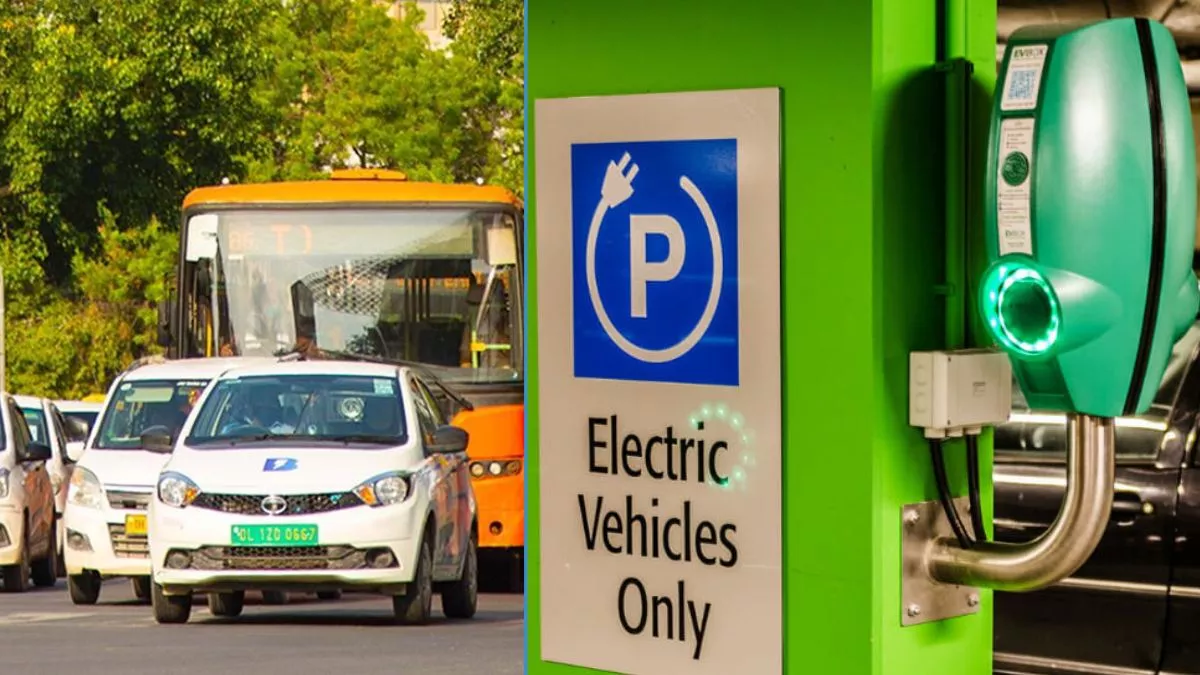
FAME II: Centre extends subsidies for e-vehicles to Rs 11,500 cr till March-end or till funds are available – EQ
In Short : The Indian government has extended subsidies for electric vehicles under the FAME II (Faster Adoption and Manufacturing of Hybrid and Electric Vehicles in India) scheme to Rs 11,500 crore until the end of March or until funds are available. This move aims to incentivize the adoption of electric vehicles and support the growth of the electric mobility sector in the country.
In Detail : FAME II subsidies: As per the revised outlay, electric two-wheelers, electric three-wheelers, and electric four-wheelers are eligible to avail of subsidies to the tune of Rs 7,048 crore.
The Centre has said subsidies under the second phase of FAME Scheme will be eligible for e-vehicles sold till March 31, 2024, or till the time funds are made available. The Ministry of Heavy Industries has announced that the outlay of the Faster Adoption and Manufacturing of Electric Vehicles in India (FAME-II) programme has been enhanced from Rs 10,000 crore to Rs 11,500 crore in a bid to push clean mobility in the country.
In its statement, the Heavy Industries Ministry said in the statement that the second phase of its flagship scheme to promote the adoption of EVs in India — FAME II — was “fund- and term-limited”.
“It is hereby informed that the scheme is fund and term limited scheme, i.e. the subsidies for demand incentive will be eligible for e-2w, e-3w and e-4w sold till March 31, 2024, or till the time funds are available, whichever is earlier,” the statement said.
The FAME 2 scheme, with a budget outlay of Rs 10,000 crore, was introduced in 2019 for a period of three years, targeting to support 7,000 e-buses, 5 lakh e-3 Wheelers, 55,000 e-passenger cars and 10 lakh e-two wheelers. The FAME-II scheme was supposed to expire on March 31 this year.
As per the revised outlay, electric two-wheelers, electric three-wheelers, and electric four-wheelers are eligible to avail of subsidies to the tune of Rs 7,048 crore. Besides, Rs 4,048 crore has been allocated towards grants for creation of capital assets, whereas Rs 400 crore has been earmarked for the ‘others’ category.
Earlier this week, the Ministry of Heavy Industries (MHI) revealed that the total utilisation of the FAME-II subsidy till January 31 for FY24 was Rs 1,980.83 crore, which is only 38 per cent of its total allocation. In 2023-24, according to MHI, the budgeted allocation was Rs 5,171.97 crore.
Answering to an unstarred question in the Rajya Sabha, the MHI revealed that the entire budgeted allocation was used up in the first three years, beginning from 2019-20, falling marginally in 2022-23, but in 2023-24, there is still a huge gap with just two months left for the FAME-II scheme to expire.
The MHI has approved 6,862 e-buses for various cities, state transport undertakings, and state governments for intracity operations. As of November 29, 2023, they have delivered 6,862 e-buses in addition to 3,487 e-buses to state transport undertakings.
The ministry has also approved 2,877 EV charging stations during the same period in 68 cities across 25 states and union territories. However, only 148 of these stations have been constructed and are currently operational. Additionally, MHI has allocated Rs 800 crore as capital subsidy to the three OMCs under the Ministry of petroleum and Natural Gas to establish 7,432 EV charging stations.
The first phase of the FAME India Scheme was rolled out on April 1, 2015, for five years with a budget outlay of Rs 895 crore. The second phase of this scheme was launched on April 1, 2019, and will continue till March 31, 2024.
The interim Budget has allocated a mere Rs 2671 crore for it in FY25, which reflects a sharp drop in allocation — from Rs 5172 crore for FY 24. In the Budget for 2023, Finance Minister Nirmala Sitharaman significantly increased the outlay for FAME II to Rs 5,172 crore. In the fiscal year 2020, the government had allocated Rs 500 crore for FAME II. However, there was a reduction in the allocation in FY 21, bringing it down to Rs 318 crore. The allocation for FY22 was increased to Rs 800 crore, and in FY23, the total allocation rose to nearly Rs 2,900 crore.













